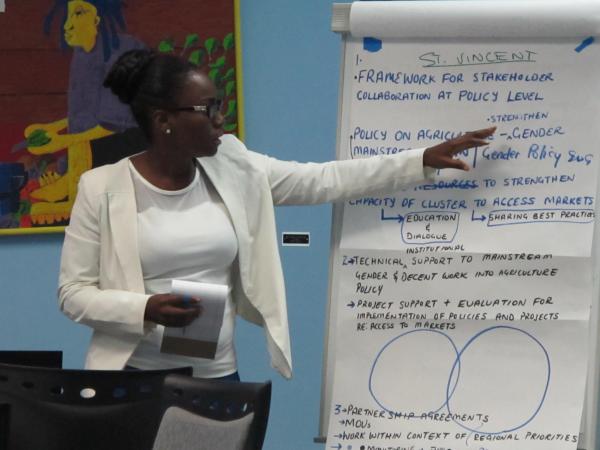Engendering Economic Security and Poverty Reduction
Date:

Representative for the UN Women Multi-Country Office – Caribbean, Christine Arab noted that some of the barriers impacting rural women are that they are operating in the informal economy with limited potential for realising real and living wages as single women-headed households and the space has not been made for them to engage in public dialogue and decision-making around agricultural and market policies which could improve their livelihood and access to decent work.
The MCO Caribbean recently brought together senior government officers from Ministries of Agriculture, Social Development, Gender and Health along with partners from the national women’s machinery, women’s NGOs, specialised agricultural development agencies and sister UN agencies to review the MCO Caribbean’s support to four pilot Gender Sensitive Food Security and Sustainable Development projects and to design a coordinated multi-sectoral approach on the way forward.
Programme Specialist for economic empowerment, Isiuwa Iyahen called on the partners to explore to what extent, job creation, entrepreneurship, agricultural and employment policies were prioritising or protecting decent jobs in the agricultural sector and in a manner that was climate-friendly and gender-equitable and how best they could support the capability of low income and smallholder women farmers’ collective efforts to negotiate with market players.
The Representative noted that while the meeting brought together new partners alongside traditional partners for UN Women, such inter-sectoral consultations are critical for ensuring gender-responsive economic policies, as work continues apace for determining the global Post 2015 development roadmaps around climate change, the greening of economies, and overall sustainable development amidst global economic challenges.